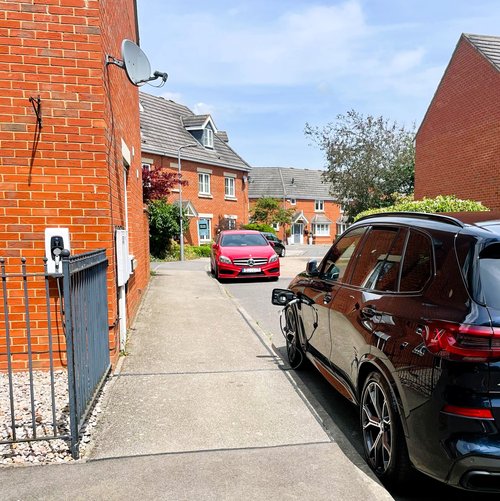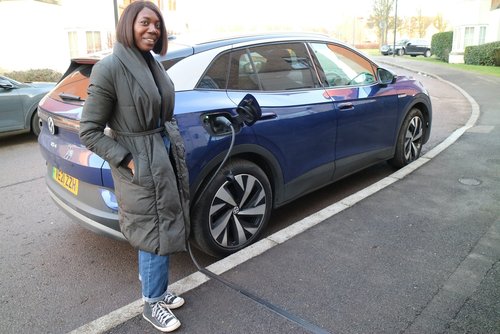
With growing demand for electric vehicles, concerns are being raised around home charging for those who don’t have their own off-street parking.
Charities the National Federation of the Blind UK and the Royal Society for the Prevention of Accidents have both recently raised the issue of cables running across pavements. Sarah Gayton of NFBUK told the Daily Mail: “It will turn pavements into a minefield – blind and visually impaired people can get their white cane tangled or trip over cables, with the potential for them to be seriously injured or even killed.”
Rebecca Guy of Rospa said that local planning authorities should incentivise EV owners to use public charge points rather than “trailing cables from their home to their vehicle”.

But there are an increasing number of solutions being devised, including smart ways of ensuring a cable can safely cross a pavement. One such solution is from Kerbo Charge, which has developed a channel which can be installed in a pavement. Equipped with a small flap, it provides a flush, safe surface for pavement users, while allowing a vehicle charging cable to be easily inserted.
Kerbo Charge is now seeing an increasing interest from local authorities, who now realise they need to support householders in solving the car charging problem – rather than try to build charging hubs themselves, which are expensive to install and cost more to use, too.
Durham County Council is the latest enlightened local authority to launch a pilot with Kerbo Charge. Councillor John Shuttleworth, the authority’s cabinet member for highways, rural communities and community safety commented: “We decided to be involved in the pilot after residents without driveways got in touch with us about seeking a solution to charge their electric vehicles.
“Their properties were checked for suitability before a programme of installation was planned and a contribution towards the install was agreed.
“Whilst we have installed hundreds of publicly accessible electric vehicle charge points in every area in the county, this solution will allow residents to access electric vehicle charging at home, making it easier for more people to drive an electric vehicle and reduce their carbon emissions.”


